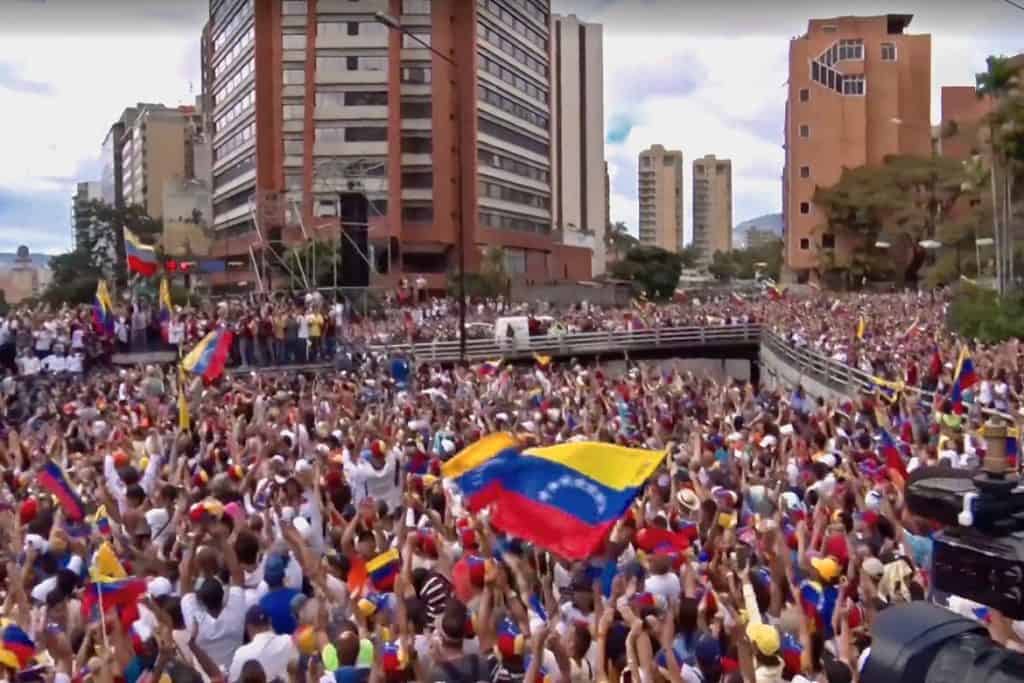By Denis Korkodinov
The leading policy motif of the policy of the President Nicolas Maduro is the popular uprising. Such an ideal is actively promoted in Venezuelan society. An example of this is the national-liberation uprising of April 19, 1810, which marked the beginning of the war for independence of the future Bolivarian Republic from Spain. To popularize this historical image in Venezuela, the people’s guards are being created, which must resist to the “American imperialism.”
Meanwhile, while Nicolas Maduro is busy re-creating images of the past, counting on a surge of civil patriotism, self-proclaimed Venezuelan President Juan Guaido is busy promoting his own “political brands” under the slogans of “fighting dictatorship.”
Thus, Venezuela was in the grip of mass protest activity. The protest became the main motive for civil behaviour: supporters of Chavista are protesting against the opposition, while the opposition is protesting against Chavistas. And they all protest almost simultaneously.
On his Twitter page, Nicolas Maduro called on his supporters to confront the United States and its allies just as Venezuela did on April 19, 1810. He explained his appeal by a desire to protect freedom. Surprisingly, almost the same theses are found among the leaders of the Venezuelan opposition.
On April 19, 1810, the uprising put an end to Spanish colonial rule. Caracas, with the support of the people, the army and the clergy, overthrew Governor Vicente Emparán and other Spanish officials. It is noteworthy that the image of Vicente Emparán is almost equally used by both sides of the coup in the Bolivarian Republic. For example, representatives of the Venezuelan opposition see in Nicolas Maduro almost the reincarnation of the overthrown Spanish governor, while supporters of the Chavista regime endow Juan Guaido with the same characteristics that are used to describe Vicente Emparán.
Thus, it turns out that the image of the colonial Spanish domination in Venezuela does not work at all, because it is used by all participants of the protest movement, thereby causing a certain cognitive dissonance. Yes, such a historical example can mobilize a crowd, but it cannot defeat a crowd to take decisive action, because the crowd needs stronger motives than the images of the past.
Juan Guaido praises by the fact that he managed to form the so-called “teams of help and freedom”, which should overthrow Nicolas Maduro. It is known that currently more than 3,100 such committees are operating in Venezuela. In each committee there are from 4 to 6 people, which means that, in total, the committees united amount at least 12,400-18,600 people, which, in my opinion, are extremely insufficient, unless, of course, these people are military elite unit especially trained.
Now supporters of military intervention in Venezuela are trying to justify their policies by the 1823 Monroe Doctrine. This doctrine on Wednesday time was the “calling card” of the United States during military intervention in Nicaragua, Cuba, the Dominican Republic and Grenada. Under Barack Obama, Washington tried not to publicize its adherence to this doctrine, but under Donald Trump, the so-called “aggravation” occurred.
And paradoxically, such a policy is served under the pretext of observing the norms of international law, which Washington itself violated. In particular, when the embassy of the Bolivarian Republic in Costa Rica (San José) was violently seized, the United States violated at least articles 22 and 25 of the Vienna Convention on Diplomatic Relations. A similar scenario could be happening in the Venezuelan embassy in the United States, even it seems nobody cares about this.
(The opinions expressed in this article are solely those of the author and do not necessarily reflect the views of World Geostrategic Insights)







